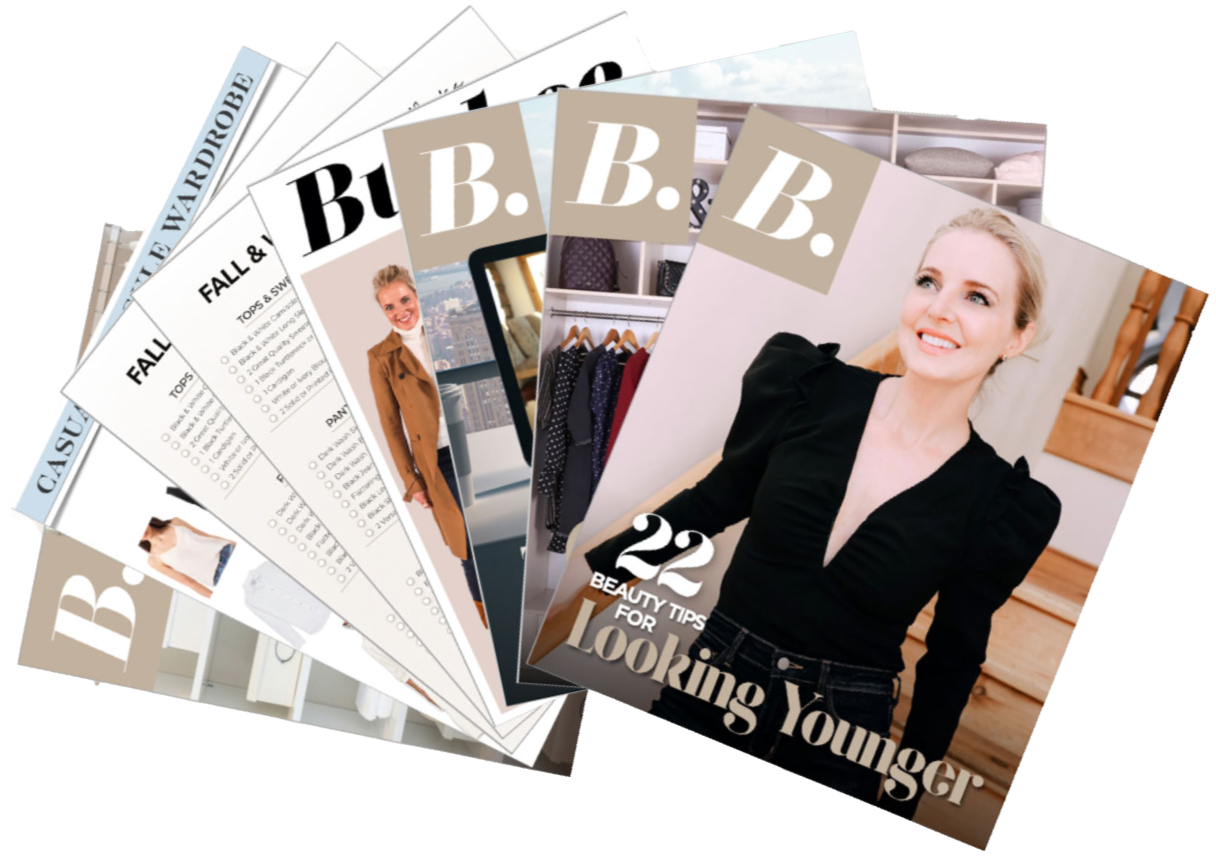In the midst of stock-piling hand sanitizer and toilet paper back in March, many of us found the pandemic to be an eye-opener in terms of stock-piling money and preparing for uncertain financial futures. Interestingly, according to the Pew Research Center, the pandemic hit women harder since the worst-hit industries were those dominated by women: travel, education, health services, and retail. The Institute for Women’s Policy Research reported that women have accounted for 55% of job losses so far since the COVID shutdowns. So, what can we do, as women, to start being prepared for a rainy day and creating financial security?
[show_shopthepost_widget id=”4249776″]

Ignore What You’re Told…
Let’s start by getting a couple of myths out of the way. The first is, you don’t need a lot of money to start investing. Putting away $20 or $100 is better than putting away nothing at all. Don’t let limited resources stop you from building your long-term wealth. Secondly, the financial industry is not just “a man’s world.” According to a study by Fidelity Investments, only 9% of American women believe they are better investors than men. Yet, an analysis of more than 8 million of its clients showed that women “tend to outperform men when it comes to generating a return on their investments.” That should give you a confidence boost!
Next, arm yourself with some helpful tips for beginners to start investing with just a little bit of money:

#1 | Minimize Risk with a Brokerage Account
The best way to do this is to invest more conservatively in the stock market and hold on to stocks and bonds during market fluctuations. Diversify your portfolio so you can withstand market downturns better. In some situations, however, you may want to buy and sell stocks on a regular basis. These transactions can add up quickly at some brokerage firms so find a brokerage account that minimizes fees for your particular investment strategy.
#2 | Try a Virtual Financial Advisor
With the use of algorithms and technologies, a “robo-advisor” eliminates the need for a human financial advisor. It provides automated financial management services and tailors your investment recommendations based on your goals. The benefit of this is that the fees are typically lower, even though you are getting customized portfolio recommendations. Great examples of this service are Betterment and Acorns.
#3 | Open a Roth IRA
If you work for a large company, then you more than likely have a 401(k). If your employer doesn’t offer a retirement account, or you are currently unemployed, consider opening a Roth IRA to start saving for your retirement in a tax-advantaged way.
#4 | Buy CDs
A certificate of deposit (CD), is a great place to grow your money if you have a low-risk tolerance. Although you’ll miss out on larger returns through higher-risk platforms like the stock market, you won’t get addicted to monitoring the stocks app on your iPhone or have to worry about volatile drops.
#5 | Educate Yourself
Investing in your financial education is just as important as actual investing. The knowledge you gain could save you thousands of dollars over the course of your life. Some things to look out for when you start investing are: Understanding and avoiding fees; Knowing your risk-tolerance; Staying on top of your investments over time; Asking about tax ramifications when you are planning out your investments; and finally, reading investing books, listening to podcasts or taking advantage of online learning tools.
Although we as women might underestimate our ability to be financially savvy, don’t fall for the stereotype! Plan your investments based on long-range life goals for yourself and your family. In the words of Dave Sperling, CMO at Stash, “The best time to start investing and saving for your future is yesterday. The second-best time is today.”
What are some of your money-saving and investment tips? Please share in the comments below!
To get blog posts delivered directly to your inbox, along with some awesome freebies, be sure to sign up for the newsletter here.
Thank you for stopping by!



Thanks for covering this topic that some people like to not think about much. I like to think about investing like shopping for clothes. I need clothes. I want very good quality clothes at a great price. I want to buy from a good company that’s been around a long time and has a good reputation. Buy good quality stocks on sale and use a company that’s been around like Fidelity, for mutual funds, Vanguard, etc. I tried one of new fangled, social media promoted companies to manage my money several years ago and that was a costly mistake. I’m sticking with Fidelity and it’s free. Educate yourself so you are not afraid of risk because the stock market as a whole always comes back. When the market takes a downturn remember that means everything is on SALE! Score.
Thanks, Debbie, for your feedback! Great analogy equating investing like shopping for clothes. I think that’s something most women can relate to!